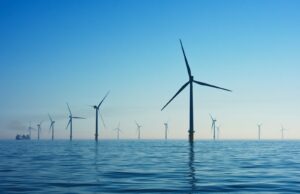Coal power fell by over a quarter (25.5%) across the European Union (EU) and United Kingdom (UK) in the first three months of 2020, compared to 2019, as a result of the response to coronavirus.
The impact is even more stark between March 10 and April 10, with coal generation collapsing by almost one third (29%) compared to the same period in 2019, making up only 12% of total EU and UK generation. By contrast, renewables delivered almost half (46%) of generation – an increase of 8% compared to 2019.
In total, demand for electricity across the continent is down by one-tenth (10%) due to measures taken to combat Covid-19, the biggest drop in demand since the Second World War.
The analysis comes from the Wärtsilä Energy Transition Lab, a new free-to-use data platform developed by Wärtsilä to help the industry, policymakers and the public understand the impact of Covid-19 on European electricity markets and analyse what this means for the future design and operation of its energy systems.
Their report calls it a ‘dramatic shift’ in Europe’s energy mix and one that was not anticipated to occur until the end of the decade.
It reads: ‘The impact of the Covid-19 crisis has effectively accelerated the energy transition in the short-term, providing a unique opportunity to see how energy systems function with far higher levels of renewables.’
Björn Ullbro, Vice President for Europe & Africa at Wärtsilä Energy Business, said: ‘The impact of the Covid-19 crisis on European energy systems is extraordinary. We are seeing levels of renewable electricity that some people believed would cause systems to collapse, yet they haven’t – in fact they are coping well. The question is, what does this mean for the future?”
‘What we can see today is how our energy systems cope with much more renewable power-knowledge that will be invaluable to accelerate the energy transition. We are making this new platform freely available to support the energy industry to adapt and use the momentum this tragic crisis has created to deliver a better, cleaner energy system, faster.’
Photo Credit – Pixabat
















